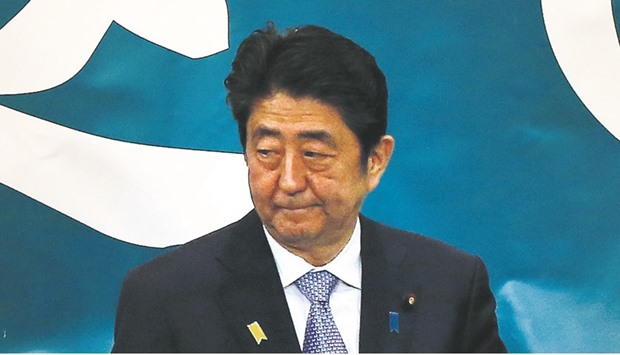US President Donald Trump’s executive order banning refugee arrivals sparked condemnation from world leaders and protests across the globe, but Japanese Prime Minister Shinzo Abe has kept out of the row.
The reason may be Japan’s own inaction on refugee issues.
Japan — the world’s third-largest economy — accepted only 27 refugees out of 7,586 applicants in 2015, up from 11 out of 5,000 in 2014 and six out of 3,260 in 2013.
That is miniscule compared to the 50,000 refugees the Trump administration said the US would accept in 2017, although Barack Obama had pledged to expand the refugee programme to 110,000. Trump’s order temporarily banned most visitors from seven Muslim-majority nations for 90 days and suspended the US refugee programme for four months, citing national security concerns.
Abe’s reticence to comment on Trump’s measure was predictable in light of Japan’s stance toward refugees, said Yukie Osa, president of the Association for Aid and Relief, Japan.
“It is understandable that Prime Minister Abe is not in a position to make comments as it is hard to say that not only the Japanese government but also the Japanese public has reached a broad consensus on the acceptance of refugees,” Osa wrote on the group’s website.
“I believe that, while looking at Trump’s immigration and refugee policy, we need to point to ourselves, not to the United States,” she said.
When asked in parliament last week to explain Japan’s position on the travel ban, which has been criticised as “anti-Muslim,” Abe said: “I’d like to refrain from making comments because it’s a domestic matter for the United States.”
“If you think their policy is wrong, you have to say so,” Hiroshi Ogushi, a lawmaker of the main opposition Democratic Party, told Abe, who is set to hold talks with Trump in Washington on Friday. “Since immigration and refugee problems and counterterrorism are global issues, I’ll discuss them with the president,” Abe responded.
Lawyers and human rights activists say Japan’s standards for certifying refugees are more stringent than those of the international community. They also argue the country’s immigration bureau focuses on controlling refugees rather than protecting them.
Japan donated $165mn to the UN High Commissioner for Refugees in 2016, the fourth-largest contributor after Germany.
At the UN General Assembly in 2015, Abe pledged to provide more than $1.5bn to help Syrian and Iraqi refugees and assist peace-building efforts in the Middle East and Africa.
When asked if Japan would receive refugees from Syria and other war-ravaged areas, as other developed countries had done, Abe replied that the country had more important priorities.
“If I talk about this as a population issue, there are things we have to deal with before accepting immigrants. That is promoting the roles of women and the elderly and raising birthrates,” he said.

Japan’s PM Shinzo Abe ...tight spot.
